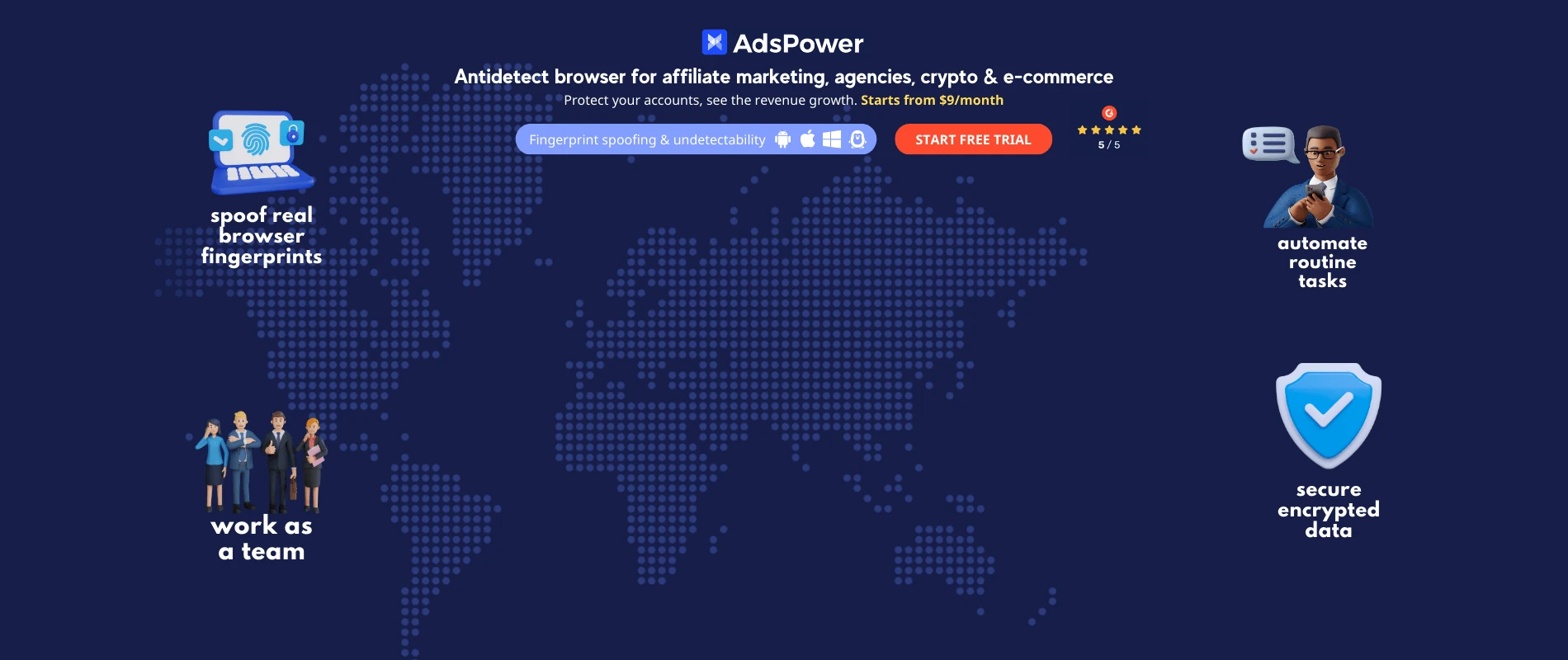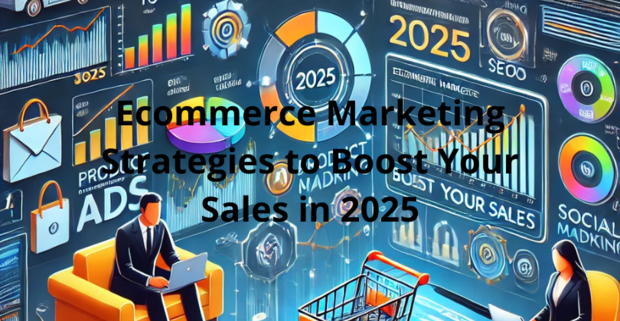Ecommerce marketing strategies, which are ecommerce marketing tactics include content marketing, social media marketing, affiliate marketing and more. The goal of ecommerce marketing is to drive online sales and revenue.
Setting Up an Ecommerce Marketing Plan
Objectives and KPIs
Defining clear objectives and KPIs, including average order value is crucial to measure the success of your ecommerce marketing. By setting specific goals you can ensure your marketing strategies are aligned with your business goals and driving your online sales.
Examples of KPIs to consider are conversion rate, average order value, customer retention and website traffic. These metrics will give you valuable insights into your marketing performance and identify areas for improvement. Loyal customers can spend 67% more than new customers in ecommerce, so customer retention is key to long term success.
Track and analyse your KPIs regularly to make data driven decisions to get more loyal customers and adjust your ecommerce marketing across all available marketing channels as needed. This continuous evaluation will help you optimise your marketing and get better results.
Budget and Resources
Allocating budget for ecommerce marketing is essential for growth and success of online retailers. Consider the size of your business, current revenue and available resources when determining your budget.
Decide which marketing channels to focus on, whether it’s social media, email marketing, or an ecommerce platform alongside search engine optimisation (SEO). Each channel offers unique opportunities to drive traffic and sales.
Assign a dedicated team or person with digital marketing expertise to manage your ecommerce marketing. This will ensure all marketing strategies are implemented and monitored for performance.Use marketing automation tools to streamline operations and optimise marketing, so your team can focus on paying affiliates and driving more sales. Also use affiliate marketing tools like Shopify Collabs to track and manage affiliate contributions and commissions.
Target Audience
Identifying target audience through customer data is key to successful ecommerce marketing for online businesses . Understanding demographics, interests and behaviours of your target customers is essential to tailor your strategies.
Use customer data and customer feedback to create buyer personas which will help you tailor your marketing to your target customers.
Use social media listening tools to stay up to date with industry trends and customer conversations, so your video marketing is relevant and effective in the context of search engine optimization.
Ecommerce Marketing Strategies
Content Marketing
Content marketing and video marketing, alongside affiliate marketing tools, is the foundation of many ecommerce businesses' strategies, to engage potential customers and convert them into paying customers. By creating compelling and informative content ecommerce businesses can position themselves as thought leaders in their industry and build trust and loyalty with their audience.
To maximise content marketing, you need to do keyword research to find high performing keywords and integrate them naturally into the content. This will not only improve search engine optimisation but also ensure the content is what the target audience is actively searching for.
Also tracking and analysing content performance through metrics such as page views, time on page and social shares will give you valuable insights into what resonates with the audience. These insights will guide future content creation so you can continuously improve and align with audience needs and business goals.
In addition to influencers, understanding how the affiliate program works by partnering with affiliate marketers can be an effective way to expand your reach. Affiliate marketers use their platforms to promote products, earning a commission for every sale generated through their unique affiliate links. This mutually beneficial relationship not only drives more sales but also builds brand awareness.
To maximise the impact of these collaborations, you need to provide influencers and affiliates with high quality marketing materials such as product images, promotional videos and product descriptions. This will ensure the content they share is consistent with your brand message and resonates with their audience.
Also tracking the performance of these partnerships through metrics such as clicks, conversions and engagement rates will give you insights into which strategies are most effective. By continuously optimising these collaborations ecommerce businesses can stay ahead of the competition and achieve long term growth in the digital space.
Social Media
Social media marketing is using social media to promote products and engage with customers. Use social media to build brand awareness, drive website traffic and generate sales. Create social media posts that are engaging, informative and relevant to your target audience. Use social media advertising to reach a wider audience and drive conversions.
Social media marketing is a key component of any ecommerce marketing strategy for online businesses. With billions of active users across platforms like Facebook, Instagram, Twitter and TikTok social media offers unparalleled opportunities to connect with potential customers and build a strong online presence.
To maximise social media marketing you need to develop a comprehensive strategy that aligns with your business goals and target audience. This means selecting the right platforms where your audience is most active and tailoring your content to each platform’s unique features and user preferences.
In addition to organic content, pay per click and social media advertising can significantly increase your reach and drive conversions. Platforms like Facebook and Instagram offer advanced targeting options so you can target specific demographics, interests and behaviours. By creating visually appealing ads with clear calls to action you can guide potential customers through the sales funnel.
Email Marketing Strategies
An affiliate program can enhance email marketing which is the foundation of any ecommerce marketing strategy, demonstrating how affiliate marketing works and offering a direct line of communication with your customers. Effective email marketing strategies are around personalisation, segmentation and automation, each playing a crucial role in driving sales and customer retention.
Automation is another powerful tool in your email marketing arsenal. By using marketing automation software you can send timely and relevant emails without manual intervention. For example abandoned cart emails can be sent automatically to remind customers of the items they left behind, encouraging them to complete their purchase. Welcome emails, post purchase follow ups and re-engagement campaigns can all be automated to nurture leads and build brand awareness.
By implementing these email marketing strategies ecommerce businesses can not only increase online sales but also build long term customer loyalty. Regularly analyse the performance of your email campaigns through metrics such as open rates, click through rates and conversion rates to refine your approach and get better results over time.
Influencer Marketing
Influencer marketing along with the affiliate program has become a powerful tool for ecommerce businesses looking to expand their reach and drive sales, showcasing how affiliate marketing works . By partnering with social media influencers brands can tap into established audiences that trust and value the influencer’s recommendations.Influencer marketing can be particularly effective when the influencer’s audience matches your target market. By choosing influencers whose followers match your ideal customer profile you can ensure your marketing resonates with potential customers. Also providing influencers with high quality marketing materials such as product images and product descriptions can enhance their promotional activities.
Tracking influencer marketing campaigns is key to understanding their impact. Metrics such as engagement rates, website traffic and sales generated through influencer links can give you valuable insights into your campaigns. By continuously optimising your influencer marketing you can stay ahead of the competition and achieve long term growth in the digital space.
Affiliate Marketing
What are Affiliate Programs
Affiliate marketing, particularly the top ecommerce affiliate programs, is partnering with affiliate marketers to promote products and earn a commission. By using affiliate programs ecommerce businesses can drive sales and increase revenue. Effective affiliate marketing can differentiate a business from its competitors and drive more sales making it a valuable strategy for growth in the competitive digital space.
To maximise the benefits of affiliate marketing you need to select affiliate programs that align with your target audience and marketing objectives. This means your marketing will resonate with potential customers and lead to more conversions. Affiliate networks connect businesses with affiliates and facilitate relationships for promoting products, create additional revenue streams and improve customer satisfaction.
Also providing affiliate partners within your affiliate network with comprehensive marketing materials such as banners and product descriptions can enhance their promotional activities. By building strong relationships with affiliate partners businesses can achieve long term growth and success in the competitive digital space.
How to Become an Affiliate Marketer
To become a successful affiliate marketer you need to select a niche or product that aligns with your interests and expertise and appeals to online shoppers. Focus on creating high quality, valuable content that resonates with your target audience as this will establish your authority in the niche.
Use social media, search engines and other available marketing channels to promote products and earn commissions. Engaging content such as blog posts, videos and social media posts can drive traffic and increase online sales. Using your own site, like blogs or social media channels is essential to drive traffic and generate sales for the affiliate network while earning commissions in the process.Disclose affiliate links clearly and follow the Federal Trade Commission (FTC) guidelines to keep your audience’s trust. Building an audience is key to long term success so focus on building real relationships and offering solutions to their problems.
By delivering value and building trust with potential customers you can build your reputation and grow as an affiliate marketer.
Online Store Optimization
Creating an Online Store
To create an online store that’s both user friendly and secure you need to focus on conversions. Using an ecommerce platform like Shopify or WooCommerce will make setting up and managing an online store a breeze and give you robust tools and features to enhance user experience.
Key things to consider for online businesses are to optimize product pages for search engines by using high quality product images and keywords. This will not only improve search engine rankings but also make your store look more appealing to more customers.
Building trust with customers is crucial for any ecommerce business. Using trust badges and security certificates will reassure visitors their transactions are safe and will make them into paying customers.
Ecommerce Sites and Optimization
Optimizing ecommerce sites for search engines is key to get organic traffic and increase online sales. Doing keyword research will help you identify relevant keywords and phrases that resonate with your target audience. A study by Backlinko found that a page ranked #1 in Google is 10 times more likely to be clicked than a page at the bottom, so getting high search engine rankings is important for visibility and traffic.
Make sure product pages, meta tags and URLs are optimized for search engines to improve visibility. This includes using descriptive and keyword rich titles and descriptions that match what your customers are searching for.
Mobile Optimization
In today’s digital age mobile optimization is no longer optional for ecommerce businesses – it’s a must. With more and more customers shopping on their mobile devices, having an online store that’s mobile friendly can impact your sales and customer satisfaction. 51% of all shoppers buy using their smartphones, so a seamless mobile shopping experience is crucial.
Mobile optimization goes beyond your website on the world wide web to mobile search optimization. Doing keyword research and optimizing meta tags for mobile search will improve your site’s visibility on search engines and attract more customers. Social media optimization is also important as many customers discover products through social media. Make sure your social media profiles and posts are optimized for mobile to drive traffic to your online store and sales. By optimizing for mobile ecommerce businesses can improve customer experience, conversions and sales. Test your site on various mobile devices and make adjustments as needed to stay ahead in the competitive ecommerce landscape.
Marketing Strategy and Planning
Marketing Strategy
Developing a marketing strategy is key to aligning with your business goals and reaching your target audience. A well thought out strategy uses multiple marketing channels like social media, email and search engine optimization (SEO) to maximize reach and engagement.
Direct marketing through email and SMS is important to reach customers directly and increase engagement. By building an opt-in subscriber list you can send targeted promotional content and communications to generate leads and customer engagement.
Review and adjust your marketing strategy based on performance metrics and feedback. This continuous improvement approach will ensure your efforts are aligned with your business objectives and adapt to changing market conditions.
Ecommerce Affiliate Programs
-
Use ecommerce affiliate programs to drive sales and increase revenue. Top ecommerce affiliate programs are great because they solve specific problems, drive traffic, sales and revenue and offer affiliates the opportunity to earn recurring commissions.
-
Choose affiliate programs that align with your target audience and marketing goals.
-
Use affiliate marketing to reach a wider audience and build brand awareness. High commissions may be offered on low selling products while lower commissions may come from high selling products.
-
Track affiliate marketing and adjust strategies accordingly.
Customer Retention Strategies
Customer retention is a key part of a successful ecommerce store strategy. Retaining existing customers is often more cost effective than acquiring new customers, and loyal customers will make repeat purchases, driving long term revenue growth.
One of the most effective customer retention strategy is email marketing. By sending personalized and relevant emails you can nurture your relationship with customers, offer exclusive promotions and keep your brand top of mind. For example, sending a thank you email after a purchase, offering a discount on their next order or sharing updates about new products can encourage repeat business and build brand loyalty. Automated reminders and exclusive offers can also re-engage customers who abandon their shopping carts and increase the chances of completed sales. Personalized recommendations can also help with customer retention among online shoppers. By using data analytics to understand customer behavior and preferences you can suggest products that will interest them. For example, suggesting products that are bought together or products based on past purchases can create a more personalized shopping experience. This increases the chances of additional sales and makes customers feel valued and understood.
Implementing these customer retention strategies will help ecommerce businesses increase customer loyalty, drive sales and overall marketing efforts. Review customer feedback and behavior regularly to see what works and refine your approach to get better results.
Product Pages and PPC Advertising
Product Pages
-
Optimize product pages for search engines and use high quality product images to make your ecommerce store successful.
-
Use product descriptions that are informative and relevant to the target audience.
-
Use trust badges and security certificates to build trust with customers.
-
Use conversion rate optimization (CRO) techniques to increase conversions.
PPC Advertising
Pay-per-click (PPC) advertising is a powerful tool to drive traffic and increase conversions for ecommerce affiliate programs. By using platforms like Google Ads and Facebook Ads you can create targeted PPC campaigns that reach potential customers. Online retailers can use PPC advertising to reach potential customers and drive traffic to their online store.
Do keyword research to find the most relevant keywords and phrases that align with your target audience’s search intent. This ensures your ads show up in front of the right people at the right time and maximize the chance of driving traffic to your online store.
Write ad copy that is informative and engaging, tailored to your target audience. Highlight unique selling points and include clear calls to action to encourage clicks and conversions. Review and optimize your PPC campaigns by analyzing performance metrics like click-through rates (CTR), conversion rates and return on ad spend (ROAS). This data driven approach will help you refine your strategies, allocate budget effectively and get better results over time.
Data Analytics and Insights
Data analytics and insights are essential for ecommerce businesses, providing information about customer behavior, preferences and demographics which is crucial for driving organic traffic through search engine optimization . By using data analytics tools ecommerce businesses can track website traffic, conversion rates and sales and make informed decisions and optimize their marketing efforts. Blogging can connect you to customers and improve your search engine results page rankings and increase your visibility and engagement.Knowing which marketing channels are driving the most sales is key to budget allocation. For example if data analytics shows that social media campaigns are converting higher than email marketing you can adjust your budget to focus more on social media. This data driven approach ensures your marketing strategies are aligned to your business goals and driving sales.
By using data analytics and insights ecommerce businesses can make informed decisions to get more website visitors , grow and overall marketing efforts. Review and analyze data regularly to stay agile and responsive to market changes and ensure long term success in the ecommerce landscape.
Conclusion
Ecommerce marketing is part of online businesses and a well planned strategy will drive online sales and revenue.
Use ecommerce marketing strategies like content marketing, social media marketing and affiliate marketing to reach a wider audience and build brand awareness.
Optimize online stores and product pages for search engines to get organic traffic and use conversion rate optimization (CRO) techniques to increase conversions.
Use ecommerce affiliate programs and PPC advertising to drive sales and revenue.




